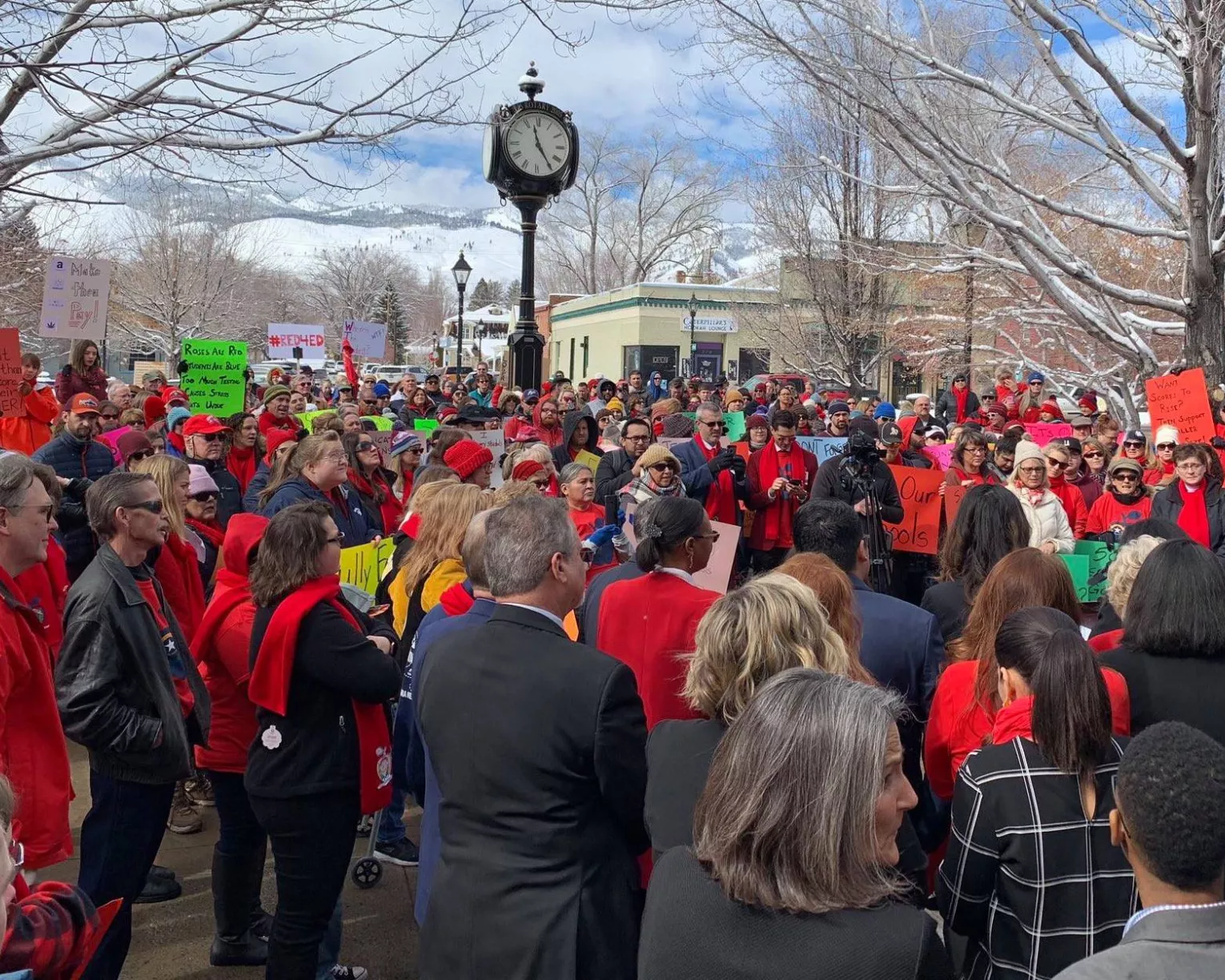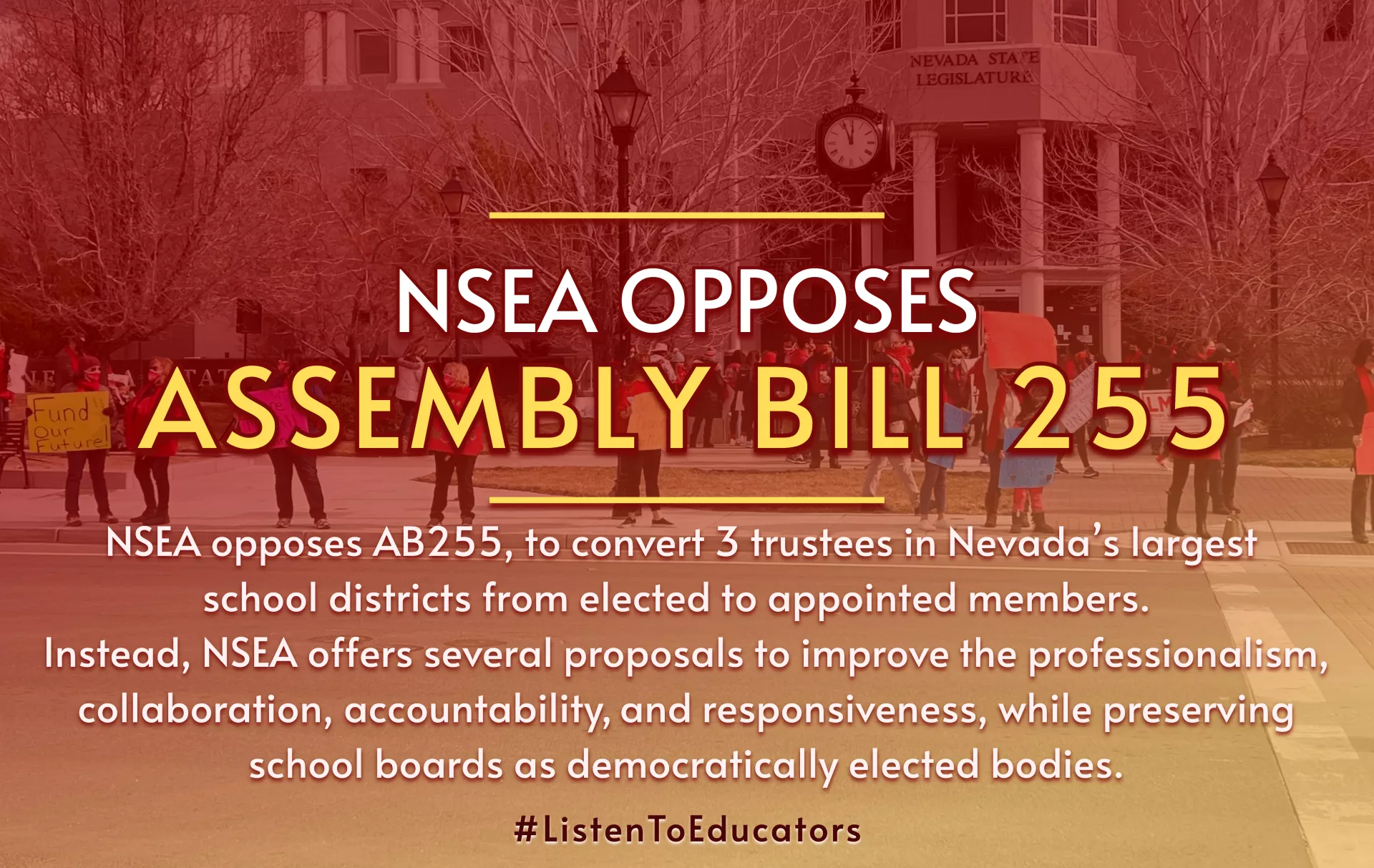NSEA takes pride in promoting the democratic process. Democratic participation is the cornerstone of governance in the United States and in our state, and locally elected school boards represent the American institution that comes closest to the ideal of local self-governance. Local school boards are in place to ensure that the schools in each community reflect the values of the people. School boards provide direction and oversight for the Superintendent who manages the day-to-day operations of the schools. They also provide direct accountability to the community.
Like any other institution, there are times when school districts and school boards do not live up to this ideal. This is true of school districts with elected school boards and those without. The difference is elected school boards provide the public with a direct line of accountability. Appointed school boards are shielded by an appointing authority who typically has significant other responsibilities in addition to appointment of school board members. It is extremely rare to see an elected official voted out of office over the actions or conduct of another official they have appointed. This is truer still when the appointment is made by another deliberative body.
Democracy can be messy. Money can have a substantial influence on elections, and sometimes campaigns are negative and turn off voters. Oftentimes our preferred candidates do not win. While these challenges are real, they are certainly not enough to abandon our system of democratic governance. Instead, we have implemented reforms over the years to make elections more democratic. This work continues here at this legislative session.
While democratically elected school boards bring the greatest levels of accountability and responsiveness to the communities they serve, we agree more should be done to increase levels of professionalism and collaboration at school boards while also bringing greater accountability and responsiveness to our communities. Below is a list of possible school board reforms we ask the committee to consider as an alternative to the appointment of school board members.
- The addition of advisory seats on local school boards could bring more breadth and diversify of perspective. In addition to representatives of local governments, we would ask for consideration of important education stakeholders like educators, students, and representatives of the PTA.
- A statewide code of conduct for school board trustees, including a process for possible removal from office for transgressions, would set clear expectations along with new lines of accountability.
- Instituting a regular rotation of School Board President would lead to more collaboration between school board trustees and decrease factionalism on boards.
- Limiting Superintendent contracts to 2 years would make Superintendents more accountable to the seated boards and lead to better working relationships.
- Compensation of trustees that better reflects responsibility would lead to more qualified and professional school board candidates.
- Elevating ballot placement of school board races would lead to greater participation.
- Electing school board candidates through ranked-choice voting would reward candidates who are more collaborative.
- Public financing of school board elections would help level the playing field while increasing communications between candidate campaigns and the voting public.
NSEA stands ready to work with the Speaker or committee members on any of these important school board reforms.
Question about this bill? Message Us!

